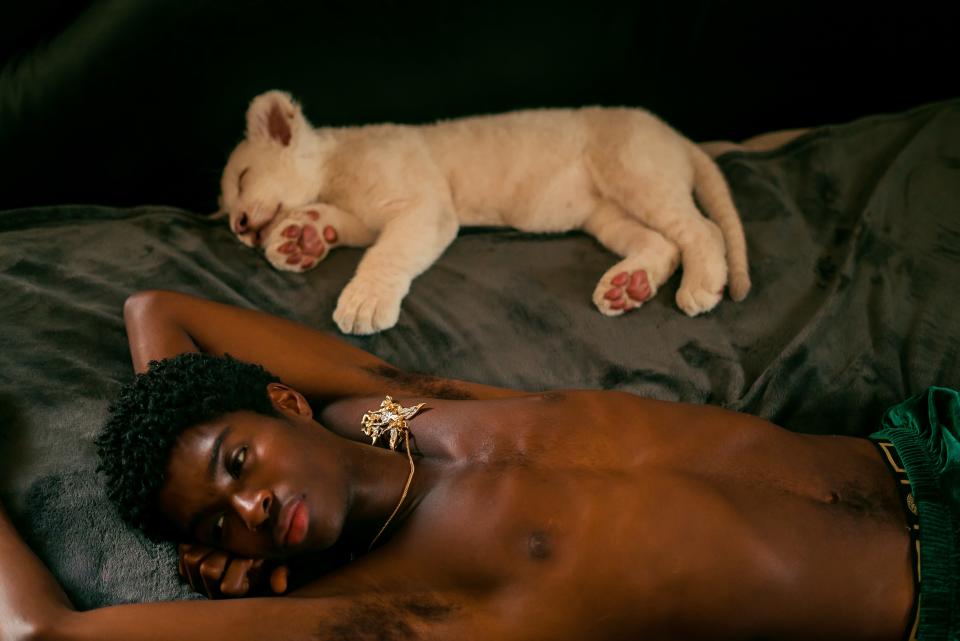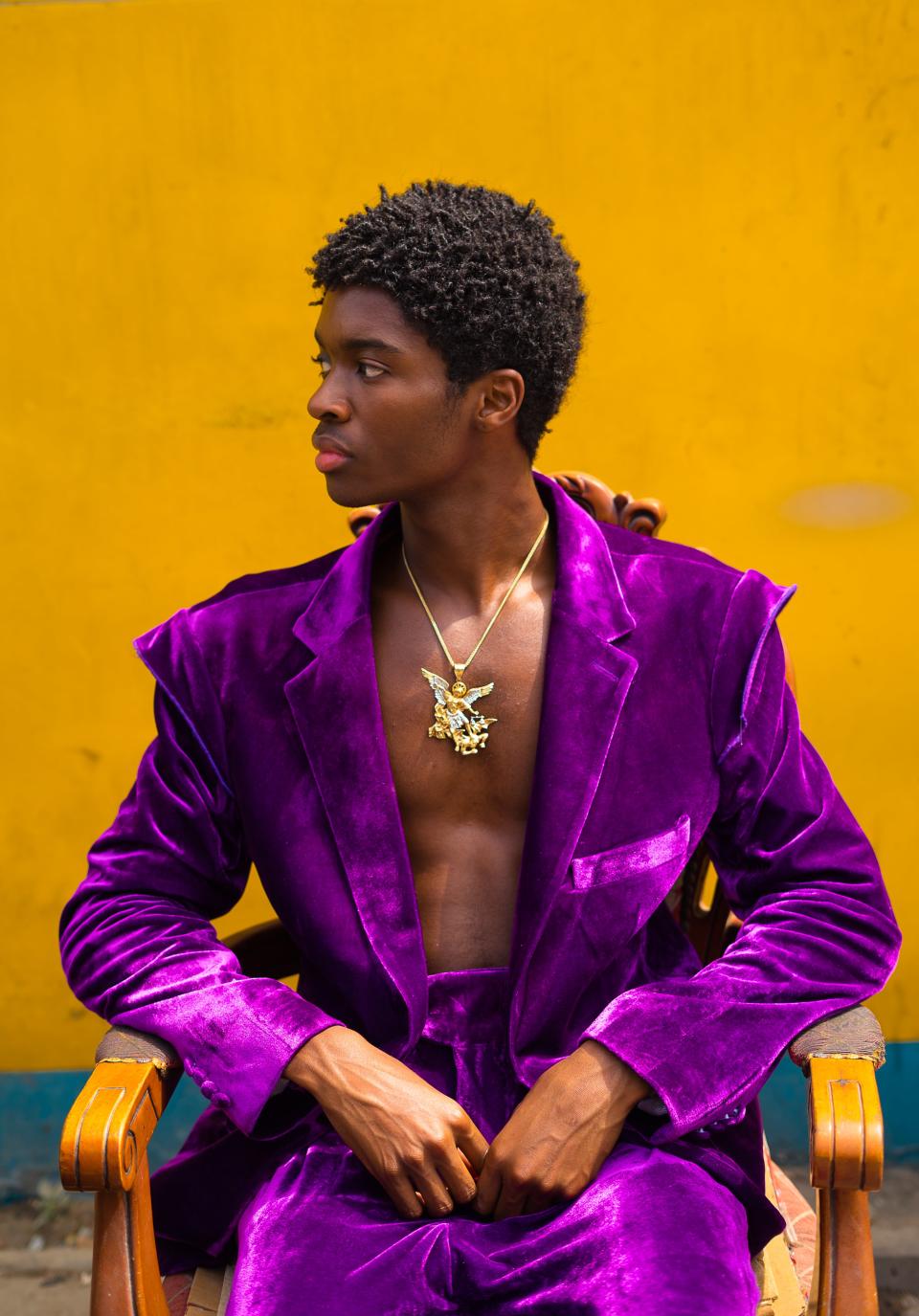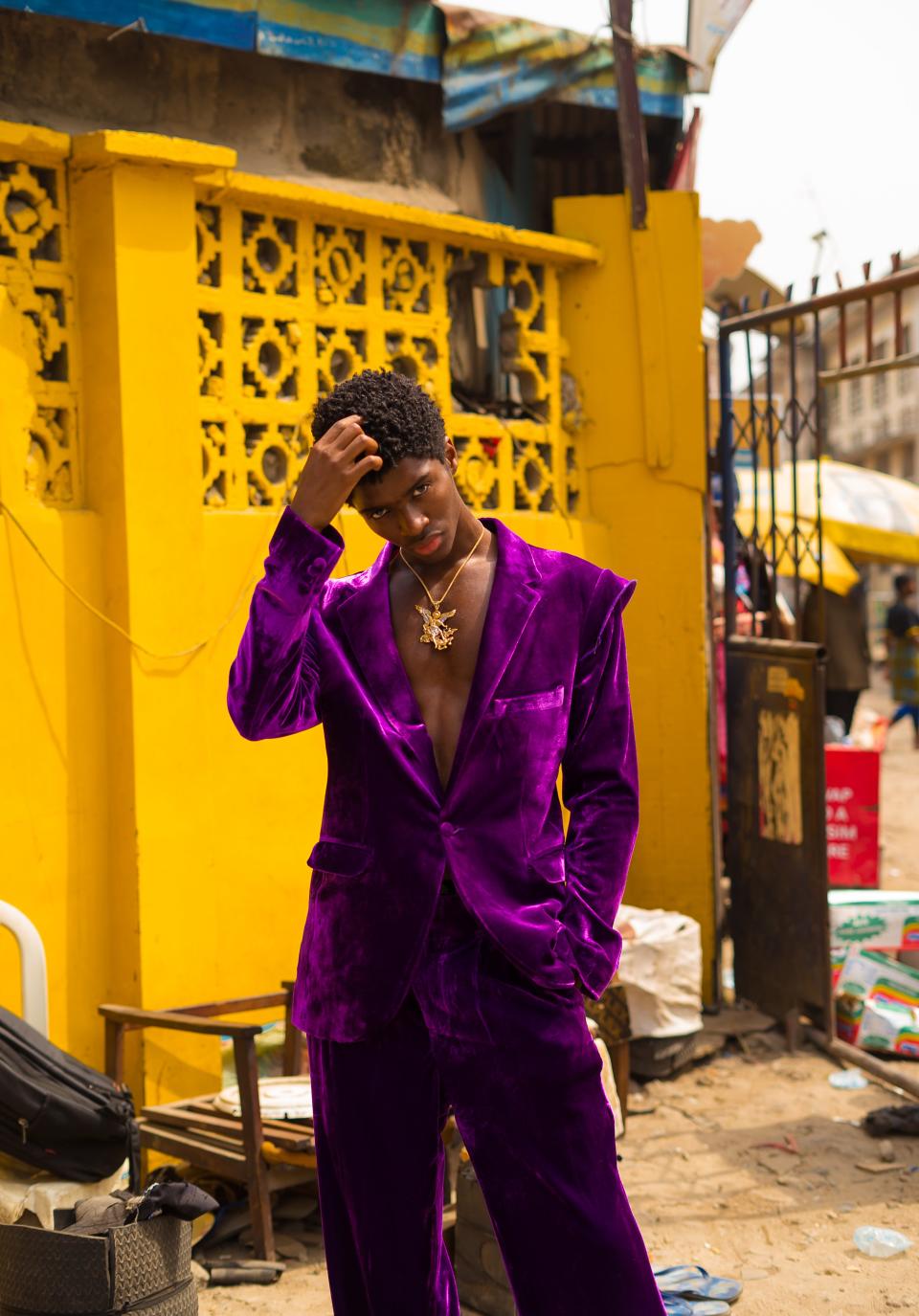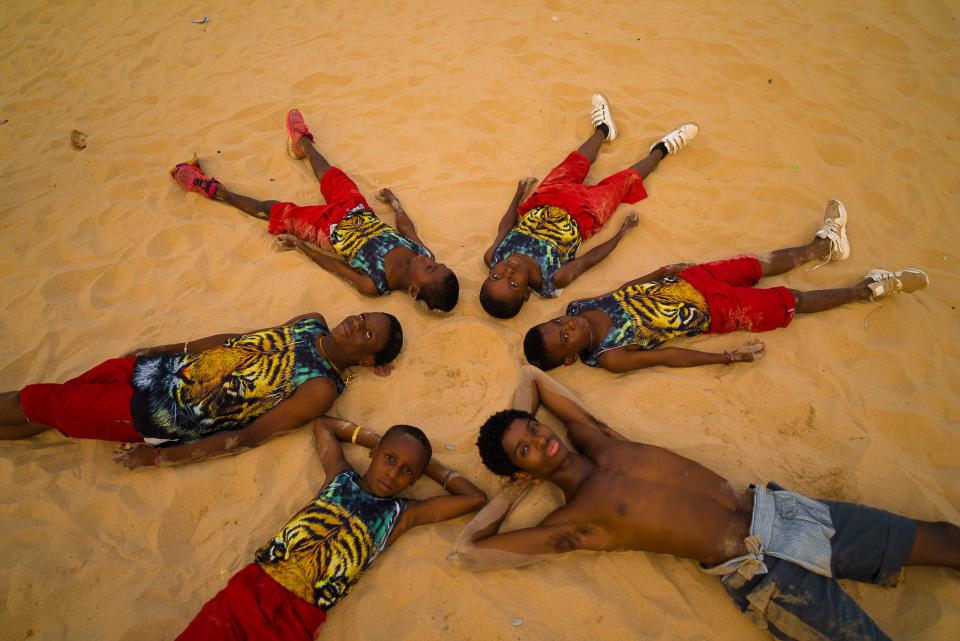Alton Mason’s Debut Short Film Is an Ode to the Creative Spirit of Lagos
At the age of just 22, Alton Mason has already lived many lives. With a professional basketball player as a father, he found himself growing up as a citizen of the world, living in countries as far-flung as Belgium, the Czech Republic, and Greece, before eventually moving back to the United States and settling in Arizona. At 17, his aspirations to become a dancer saw him move to Los Angeles to study at the American Musical Dramatic Arts Academy, where he found himself performing as a backup dancer on the side for the likes of P. Diddy. Then, in 2015, he was scouted on Instagram, making his first appearance for Yeezy a year later, before eventually walking runways around the world for the likes of Gucci, Chanel, and Louis Vuitton.
Well-traveled though he may be, Mason felt something different upon touching down in Lagos, Nigeria, last year. “It was my first time in Africa, and the moment I landed I was stunned. Being an African American, there are so many different perceptions of Africa that are taught to us in school and through the media,” Mason explains. “The moment I landed and drove into the city of Lagos, all of those American perceptions, based on fear, were proven false. I was immediately captivated by nature, the land, the buildings, the water, and the spirit of the country, which made me free to create the song and video in this sacred place. I felt home.”

The song he’s referring to is Mason’s first single, titled “Gimme, Gimme” and produced by Kevin-Dave, that is the soundtrack to a coming-of-age short film titled Rise in Light, codirected by Nigerian-American filmmaker Amarachi Nwosu and the Persian-Canadian artist and cinematographer soof Light. The video was initially planned as an introduction to Mason’s nascent career as a musician, though as the current pandemic began to spread globally, both Mason and Nwosu decided to use it as the foundation for a fundraising effort to support the Khan Foundation, a Lagos-based nonprofit that is currently providing relief supplies to some of Nigeria’s most vulnerable communities.
“I’ve worked with the Khan Foundation for two years now, and I have actively seen them change the course of many of these children’s lives in a way that has brought the light out of them,” says Nwosu, who is based between Washington, D.C., and Lagos and is the founder of Melanin Unscripted, a creative platform and agency focused on dismantling cultural stereotypes. “We wanted to use art and this film as a vessel to do so and lend a supporting hand.” For Mason, too, the timing of the release feels strangely apt as an opportunity to help those less fortunate during this time of crisis. “Many of us are losing loved ones and businesses, but also our faith and hope,” he adds. “The film is a call for change, and an expression of love and joy—we just hope it can inspire and uplift.”
The song’s gently rhythmic, laid-back groove feels reflective of Mason himself, who is softly spoken but articulate, deliberate with his choice of words. “Writing has been something that I have cherished ever since I was in grade school,” Mason explains. “I’ve always loved poetry and spoken word and kept journals with me wherever I traveled to, so writing music felt natural.” The video, meanwhile, begins with Mason playing with a white lion cub in a Lagos apartment before walking the city’s streets in a dazzling purple crushed velvet suit designed by the cult Nigerian label Orange Culture (also serving as a wink to one of his musical heroes, Prince). “The purple suit represented the aura that was exuded while on the mainland,” Mason explains of his collaboration with stylist Ugo Mozie. “A purple aura symbolizes healing, spiritual enlightenment, cleansing, and freedom, which are all elements that I felt during my entire trip in Nigeria.”


“While the film’s core purpose wasn’t about fashion or clothing, we really wanted to represent African designers through this film and spotlight them,” Nwosu continues. “These designers don’t get nearly enough recognition in mainstream media, so this was a chance to place them at the same level you would see other high-end brands and designers.” In this sense, the video acts not just as a reflection to the thriving fashion scene at work in Lagos today, seen in the rising profile of the city’s annual Arise Fashion Week and the international success of labels like Orange Culture, Kenneth Ize, and Maki Oh, but, with its charitable element, as an act of giving back to the city and its people.

“I’ve always been curious about Africa because of my ancestry and because of its influence on every aspect on earth, whether that’s fashion, music, food, science, architecture—everything,” Mason adds. “It grew even deeper once I realized what they taught us in school was not even a fraction of black history and its depth. We are more than Martin Luther King Jr., Malcolm X, and slavery. We are creators, and our soil is so sacred that anyone who steps foot onto the land can feel a sense of home and belonging, for this is where it all began.” With his first step into the spotlight as a musician, Mason is beginning his own new chapter on the soil where he feels most at home.
The short film’s climax features Mason dancing on a beach in Lagos’s Tarkwa Bay with a group of local boys that producer Nnenna Anyaugo cast on the streets, all clad in their own tiger T-shirts in a neat (although, as Mason explains, entirely accidental) moment of synchronicity with the lion cub featured elsewhere in the video. Despite the video being shot well before the COVID-19 crisis landed, for Mason, the inclusion of the local kids feels like a timely reminder of the support that young people growing up in Lagos’s poorer districts need right now, and that he’s hoping to support through his fundraising campaign for the Khan Foundation. “It’s a sensitive time and people are scared to put things out, but it could be fear of what someone might say about it, or that it’s too distracting from this or that,” Mason concludes. “But the intention is just to inspire and to give back.”
Originally Appeared on Vogue

